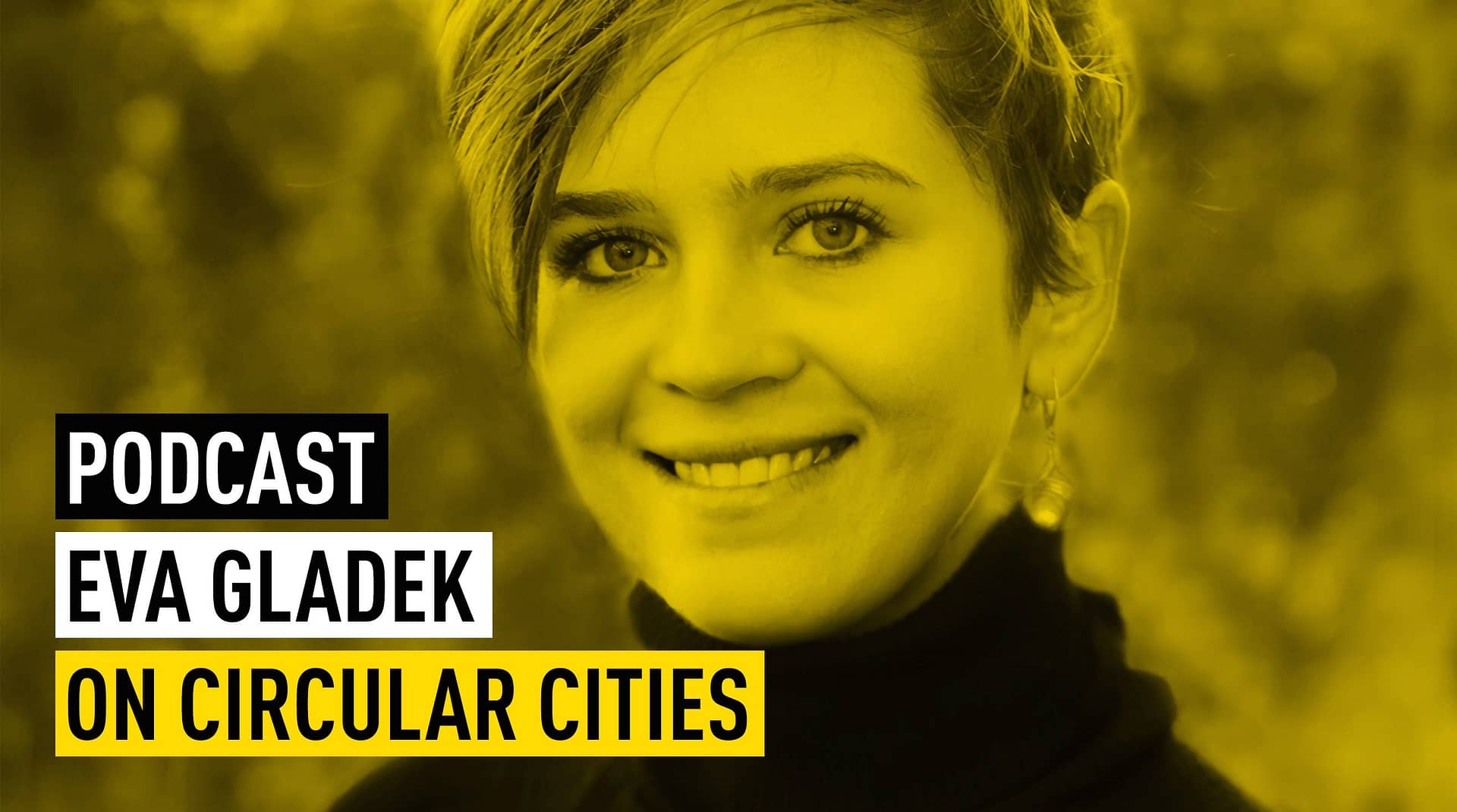In a new episode of the Pakhuis de Zwijger podcast, Metabolic founder and CEO Eva Gladek explores ‘circular cities’ and how Metabolic is using systems thinking to accelerate their transition.
On the origins of “Metabolic”
“The word metabolic is a metaphor from the biological world. Everyone has a metabolism, which is the system in our body that takes food and processes it into energy and other useful substances. When we look at cities or other man-made constructs, like sectors and industries, they also have a metabolism: they’re extracting resources from the environment, they’re processing those into energy and food and materials used for constructing our world. And beside that, they produce a lot of different waste.
[Our] goal is to look at human systems through the lens of natural systems, like ecosystems, and what we see is that currently the metabolism of our economy is not functioning very well. It’s producing a huge amount of waste and it’s a very linear system. We’re looking at how to fix it and how to make it more circular”.
On working towards circular cities
“Cities are a huge leverage point. They only occupy 3% of the planet’s surface, a very small area, but they consume 75% of the resources and produce 50% of the waste. Beside that, they’re responsible for 60-80% of the GHG-emissions, not to mention the massive population numbers that reside in cities. This means you can have a huge effect on human wellbeing. You can change the patterns of impact that we’re having as people if you really start to redesign cities and think about changing the way we use resources within them.”
“I think especially in Europe, the Netherlands, the UK and the Nordics, there has been this real awareness of the circular economy as a model for cities to transition. We’ve been trying to bring that model and that way of thinking to other parts of the world, which is slowly working. That’s something that we’re very excited about. We’re using the leading examples, like Amsterdam & Rotterdam, as pioneers in that space.”
“The way that we work with cities in general, I think, is very structured and systematic. You start with a current state analysis where you understand the current resource flows and impacts, you have a vision and KPIs. And then, a roadmap that you derive from those two. Then you know where you are and where you want to go, meaning you can draw different routes. I think there are certain additional, structured activities that could support that transition. Guiding certain sectors, working on the reverse logistics and infrastructure for waste management, policy incentives etc. There are a lot of specific things that could lead to that transition in a more accelerated way. I think there’s also a lot of personal awareness among the citizens that could grow.”
On “what you can do”
“A question I get a lot is: “What can I do as a person to contribute the most to this vision of a sustainable future?” Obviously, there’s many things that people can do. However, I think the most fundamental course of action is to really examine whether your career, what you’re doing with your life, how you’re spending your time, is contributing to that future or not.”
“We can actually starve the system that we think is causing these problems. Starve it for talent, starve it for time and attention. That’s one step. That’s the biggest personal thing people can do, in addition to, of course, voting and being as responsible with what you can do. Although the systems change has to come before we can all just stop traveling by plane or being impactful through products. Without the systems change that requires the shift of consciousness, we’re all going to be extremely disadvantaged in creating huge restrictions for ourselves. It’s really about that bigger piece of reflecting on how you’re contributing through your life and your time towards that bigger transition.”
To learn more about Metabolic’s work on circular cities, reach out to our Cities Program Lead Tamara Streefland on [email protected]. Hear the full podcast on the Pakhuis de Zwijger website.






